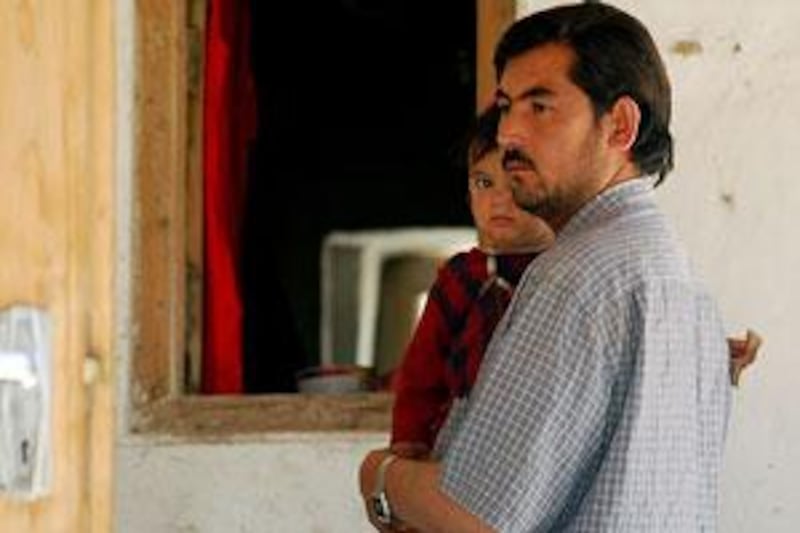BARAKI BARAK DISTRICT // Aminullah was getting ready to pray when the glass around him shattered. He ran inside and found his wife lying on the hallway floor, a bullet hole in her back. She cried fainly twice before she died. "My son is shouting for his mum all the time. He misses her a lot. My daughter still doesn't know what happened because she is too small," he said. "The family feels awful. Whenever my son shouts for his mum I show him his grandmother and say: 'This is your mum. Your mum is dead now, so your grandmother is your everything'."
Aminullah was speaking at his home in the Baraki Barak district of Logar province, where the Taliban have a strong presence. The rooms of the house were sparsely furnished and the windows were cracked. As fighting between insurgents and foreign soldiers spirals ever upwards, situations like this have become commonplace in Afghanistan. The new commander of US and Nato forces has promised to cut civilian casualties, but for Aminullah, and many others caught in the crossfire, it is already too late.
His pregnant wife appears to have been killed during a battle involving the Taliban and US troops six months ago. The bullet that killed her, Aminullah pointed out, is not the type commonly used by the rebels. Although there is no suggestion that she was shot deliberately, it is of little consolation to the 25-year-old and his two children. The majority of Logar's residents may also have had enough.
"I am sure it is the Americans who are committing crimes like this. That means they are stirring up a bees' nest because the people will stand against them," he said. Until fairly recently, Logar did not feature much in discussions about the insurgency in Afghanistan. That began to change last year when a number of high-profile attacks, including a deadly Taliban ambush on international aid workers, showed just how dangerous the situation here had become.
Extra US soldiers have since been sent to the province, on Kabul's southern border, and security has subsequently improved in some areas. Any progress is extremely fragile, however, because of the possibility that innocent civilians will again be killed. Haji Aminullah, Aminullah's father, recalled how they were trapped inside their home for hours before they could inform relatives of the death in their family. He added that more unrest is inevitable.
"The majority of the people are not happy with the Americans. Now a lot more soldiers have come to this country and to Logar, so again there will be fighting," he said. According to US military officials, Afghanistan last week suffered its most violent week since the war started in 2001. Figures also show that insurgent attacks increased by 59 per cent between January and May compared with the corresponding period in 2008.
But it is the civilian fatalities caused by US coalition and Nato-led International Security Assistance Force that concern people here the most. Ekramuddin is a 24-year-old member of the border police. His brother was going to a wedding party when he found himself caught in the same firefight that killed Aminullah's wife. He was hiding behind a wall when foreign troops shot him dead. US soldiers later alleged that Ekramuddin's brother was armed.
"This is the habit of the Americans. If the Taliban fire at them, they start firing at the whole village even after the Taliban have retreated," Ekramuddin said. A spokesman for the ISAF insisted it was "working very hard" to avoid killing innocent Afghans and accused the rebels of causing more than 80 per cent of all civilian casualties. "This is because the insurgents persist in attacking security forces while in the proximity of civilians, including areas such as homes, towns and villages.
The insurgents also emplace improvised explosive devices that indiscriminately target civilians and security forces," he said. "When attacked by the insurgents, Afghan security forces and ISAF take extensive precautions to ensure civilians are not caught in the conflict. These precautions include only using air, artillery or mortar support if areas are unoccupied by civilians." He added that the extra soldiers deployed in Logar "will assist local Afghans to live in peace".
skarim@thenational.ae





